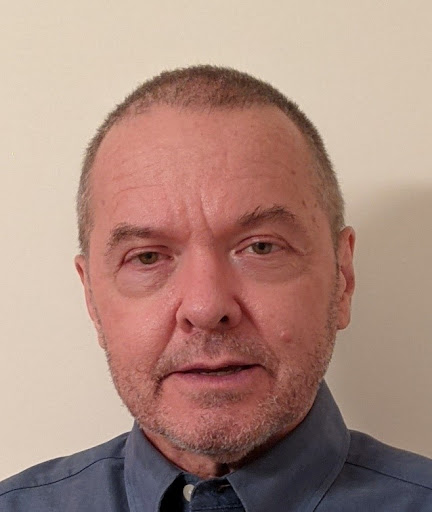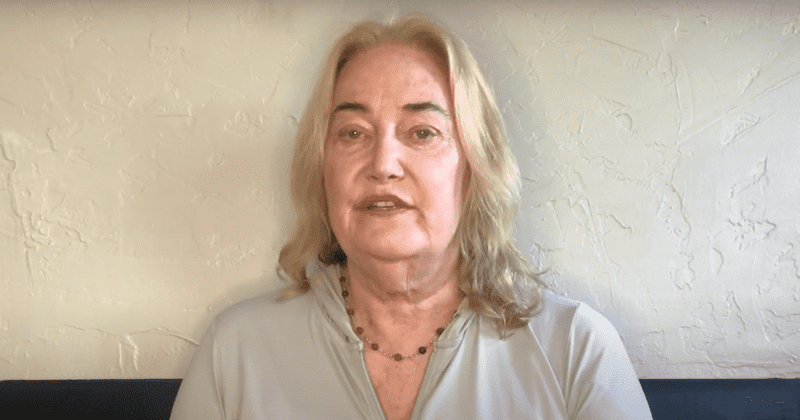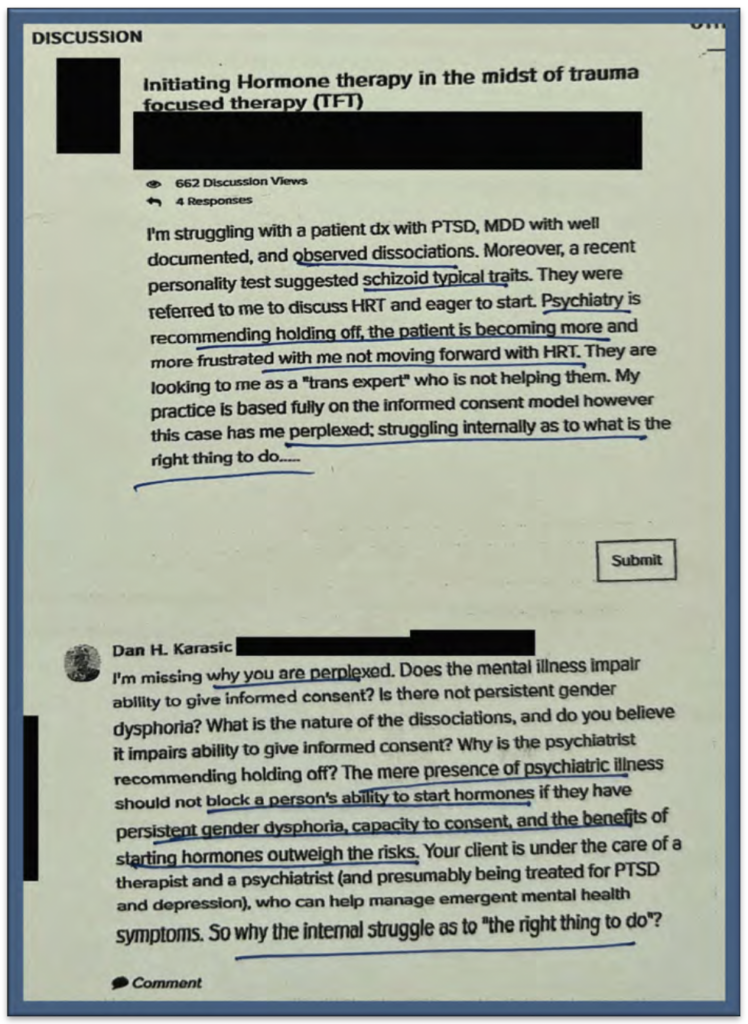Leaked Files From Influential Transgender Medicine Group Cause Uproar, Could Imperil Liberal Efforts To Undo State Bans on Gender-Transition Treatments for Children
The damning new report on the World Professional Association for Transgender Health ‘is going to really bite them,’ says a former WPATH leader. ‘I’ve tried to steer them. I gave up.’

The publication of a trove of leaked internal communications from the nation’s predominant transgender medicine and advocacy organization – in which leading doctors in the gender-care field acknowledge children’s inability to consent to gender-transition treatment and espouse few limits for prescribing hormones to gender-distressed adults with severe mental illness – has roiled the already fraught debate over gender-related medical care for children and adolescents.
The leaked documents could also imperil liberal legal groups’ efforts to undo bans on such medical treatment in the courts. And they could aid the growing number of plaintiffs suing what they claim are unscrupulous medical providers who provided them with gender-transition treatment when, the plaintiffs argue, they should have focused on their myriad other mental health needs instead.
The documents could also inspire new malpractice suits against health care providers– including members of the organization – and even fraud lawsuits against the organization itself.
The group in question is the World Professional Association for Transgender Health. On March 4, the think tank Environmental Progress published a sprawling and scathing report based on leaked internal documents from the organization. The report portrays WPATH members as engaging in what it characterizes as reckless and non-evidence-based medical practices to treat gender-related distress while often being indifferent to serious risks.

Called The WPATH Files, the report asserts that health and mental health providers within WPATH leadership have been knowingly providing or endorsing gender-transition treatment to people with at best a poor capacity to provide informed consent for such care. This includes gender-distressed minors (children and teens distressed over their biological sex) and their parents consenting on their behalf. WPATH is also accused of fostering a culture of heedless prescribing of gender transition treatments to “vulnerable” adults, in particular those with numerous severe psychiatric conditions.
Gender-transition treatment can include cross-sex hormones and gender-transition surgeries, and for adolescents, puberty blockers.
Republican state attorneys general are expected to exploit the report to attack WPATH’s credibility as they defend recent state bans of pediatric gender-transition care—a mounting legal battle that appears headed to the U.S. Supreme Court.
“Courts across the nation have relied on WPATH as the subject matter expert to stop the enforcement of state laws protecting children from sex-modification procedures,” said Alabama Attorney General Steve Marshall, a Republican, referring to judges who have blocked some of the 23 state bans of pediatric gender-transition treatment. “The WPATH Files confirm that such reliance is misplaced.”

Seven current and former WPATH members spoke critically about the organization with The Sun. Many said that the public-relations crisis engulfing WPATH was of its own making, at least in part. And they criticized the organization’s leaders for presenting such a confident, united front to the public regarding the safety and efficacy of pediatric gender-transition treatment.
They said that WPATH leadership instead should have favored greater transparency regarding the organization’s ongoing appraisal of pediatric gender-medicine research. WPATH, they said, should have made clear to the public two things: that according to an increasing number of systematic literature reviews conducted in Europe, the associated scientific literature regarding medical gender transitions for minors remains wanting and inconclusive; and that a swath of European nations have accordingly moved to reclassify such treatment as experimental and to sharply restrict minors’ access to it.
However, current and former WPATH members also said they recognized that the politicization of pediatric gender medicine in North America has put the organization in a bind. Any acknowledgement of uncertainty about this field on WPATH’s part, they said, would inevitably lend ammunition to opponents of minors’ access to gender-transition treatment—and could ultimately imperil adult access as well.
Jordan Campbell, a partner at Campbell Miller Payne, a legal firm established to represent in medical-malpractice cases so-called detransitioners—those who received transition treatment as minors or young adults and later regretted it and reverted to identifying as their birth sex—said that that potential legal impact of The WPATH Files “cannot be understated.”

WPATH’s only response to a request for comment was a blanket claim from WPATH president Dr. Marci Bowers that she was being misrepresented in the detailed content from the draft of this article that, in advance of publication, The Sun shared with her and WPATH leadership. She did not respond to a request to be more specific.
The day following the publication of the report, WPATH emailed its membership to request that they remain publicly silent on the matter.
This email, obtained by the Sun, included a statement from Dr. Bowers, which the organization asserted at the time would remain its only response to The WPATH Files.
“We are the professionals who best know the medical needs of trans and gender diverse individuals, Dr. Bowers said.

How the report could damage WPATH’s reputation and credibility
Largely U.S. based, WPATH is an amalgam of a medical society and an advocacy organization, open to a wide array of professionals, such as endocrinologists, surgeons, pediatricians, psychologists and lawyers, as well as activists. Its untraditional structure notwithstanding, WPATH is considered by the nation’s major medical associations to be the go-to authority on gender-transition medicine, including for minors.
WPATH publishes guidelines, widely endorsed by those other societies, for the treatment of gender-related distress in children, adolescents and adults. The eighth edition of these so-called Standards of Care, called “SoC 8,” was published in 2022.
Environmental Progress’s new WPATH Files report runs over 200 pages and is based on scores of screenshots of a private, internal WPATH forum, plus a video of an expert panel.
According to legal experts, one particular segment of the report that likely poses an acute threat to WPATH’s credibility in litigation comes from a WPATH training video including Dr. Dianne Berg, a psychologist at the University of Minnesota and coauthor of the SoC 8 chapter on children, and Dr. Daniel Metzger, an endocrinologist at B.C. Children’s Hospital in Canada. The two describe how compromised minors, and even their parents, can be in comprehending the long-term risks and implications of gender-transition medications.
In the leaked video, Dr. Berg says she remained “a little stumped” over how to communicate the risk of future infertility to children nine to 11 years old who want to start taking puberty blockers and then cross-sex hormones.
Biological males in particular, researchers believe, face a substantial risk of infertility due to starting gender-transition treatment as a child, especially if they begin puberty blockers before their testicles have had a chance to grow. At that developmental stage, obtaining sperm to freeze is likely difficult if not impossible. But as Dr. Bowers is quoted in the report, answers to these critical ethical questions remain murky, because the “fertility question has no research.”

“You talk about fertility preservation with a 14-year-old, but I know I’m talking to a blank wall,” says Dr. Metzger. He recounts stories of young adults who had started such treatment as minors coming to regret their inability to have biological children.
“But what really disturbs me,” Dr. Berg says, “is when the parents can’t tell me what they need to know about a medical intervention that apparently they signed off for.”
Neither Dr. Berg nor Dr. Metzger returned a request for comment.
According to Dr. Gregory Dolin, a medical doctor who teaches tort law at the University of Baltimore School of Law, when a medical institution such as WPATH is “saying one thing publicly and another thing privately, that might make them a juicy target for any malpractice suit.”
In public, WPATH has remained resolute that pediatric gender-transition treatment is safe and effective and that, in the words of a prominent member, University of California, San Francisco, psychologist Diane Ehrensaft, “children know who they are” and can be trusted to guide their own gender-transition trajectory. In a March 2023 release, WPATH touted the SoC 8 as the “foremost evidence based guideline” in the gender-medicine field.
“Gender-affirming interventions are based on decades of clinical experience and research and are not considered experimental. Gender affirming hormone therapy is a component of widely accepted medically necessary care” for trans people, WPATH stated.
“Where WPATH is vulnerable is having ignored the systematic evidence reviews in Europe” that contradict such sweeping claims, said Erica Anderson, a Minnesota psychologist and former head of WPATH’s US branch, USPATH. “That is going to really bite them. I’ve tried to steer them. I gave up.”
In an interview in February that preceded the WPATH Files’ release, Dr. Bowers was adamant that gender-transition treatment is highly effective at resolving mental health problems. “The vast majority of people, when they’re through with transitioning, don’t really look back and don’t really need any mental health care,” said Dr. Bowers, who performs gender-transition surgeries.
Laura Edwards-Leeper is an Oregon psychologist and WPATH member who was part of the team to first import the pediatric gender-transition treatment model to the U.S. from the Netherlands in 2007. More recently, she has aired doubts about the practice. She called the notion that gender-transition treatment is a virtual panacea for mental health problems “unfathomable.”
In interviews, Dr. Edwards-Leeper and other WPATH members who spoke critically of the organization nevertheless defended Drs. Berg and Metzger. They said that during the video, these two were engaging in the commendable airing of concerns, necessary to promote good patient care. They said it was understandable that neither Dr. Berg nor Dr. Metzger had publicly addressed these concerns, given the tense political climate and the fierce blowback sustained by those within WPATH who lend the public cause to doubt the organization.
“Most of my colleagues I’ve talked to who are not in the video think everyone did a great job,” Dr. Edwards-Leeper said. The video’s panelists, she said, are “the internal heroes” in WPATH, “the ones fighting internally for increased awareness of the ethical dilemmas and challenges when working with youth.”
How The WPATH Files might buttress state bans
In the wake of nearly half of U.S. states passing bans of at least some form of gender-transition treatment for minors, various legal groups have sued to block them. This has led some such cases to advance through the circuit-courts. In November, the ACLU and other legal organizations requested that the Supreme Court take the case concerning Tennessee’s ban. The ACLU’s petition to the court leans heavily on WPATH as what the legal group characterizes as a widely trusted source validating these treatments.
In a brief that opposes the Supreme Court taking up such a case just yet, Mr. Marshall, the Alabama attorney general, argued that the ACLU and the U.S. Justice Department were rushing the legal process because time was not on the side of WPATH’s credibility. The federal district court judge that had blocked Alabama’s ban, Mr. Marshall noted, had acknowledged the risks of such treatment — “including loss of fertility and sexual function,” in the judge’s words. Nevertheless, the judge wrote that “WPATH recognizes transitioning medications as established medical treatments.”
This means, Mr. Marshall told the Sun, that the district court case over his state’s ban could at least partially hinge on WPATH’s credibility. The organization’s internal documents, he said, “can shatter the narrative that the procedures WPATH recommends are safe and effective and expose WPATH for what it is: an activist organization that has left traditional medical ethics and the scientific method far behind.”
The WPATH Files could amount to a mere preview of the scrutiny and exposure WPATH will sustain amid such litigation, given that Mr. Marshall’s office has subpoenaed the organization’s voluminous records related to the drafting and adopting of SoC 8. These documents are currently under seal, and it remains unclear whether and when any of them will be made public.
Jane Wheeler, cofounder and president of the nonprofit Rethink Medical Identity Ethics, said that legislators have a legitimate interest in effectively regulating pediatric gender-transition treatment, and a constitutional right to do so. “The medical establishment has not showed any intention,” she said, “to self regulate or even to acknowledge that there is a problem” with such medical practices.
Gary Click, a Republican state representative from Ohio, led his state’s recent ban of such treatment and said the report “vindicated” his efforts. As the state faces a likely lawsuit to challenge the law, he said, “The WPATH Files cannot help but undermine any case that the ACLU intends to present here in Ohio.”
The ACLU did not return a request for comment, nor did the LGBTQ legal group Lambda Legal.
How WPATH files may impact malpractice lawsuits
The WPATH Files quotes Dr. Bowers characterizing the gender-care field as often uninterested in and dismissive of the risk that patients might ultimately regret their transition. She said to her colleagues that “acknowledgement that detransition exists even to a minor extent is considered off limits for many in our community.”
Fourteen known medical-malpractice cases have been filed against health and mental-health providers and their employers by detransitioners; more are expected soon. One suit also targets the American Academy of Pediatrics. Such suits typically accuse the defendants of egregiously favoring treating gender dysphoria with medications and, in some cases, surgery over treating serious mental health concerns.
These cases are not necessarily structured to hinge upon WPATH’s authority. Instead, they typically accuse the defendants of not even meeting WPATH’s standards, such as by not conducting a thorough—or any—psychological evaluation prior to starting the plaintiff on cross-sex hormones.
However, according to Charles LiMandri, a partner at LiMandri and Jonna, a California firm behind two detransitioner suits, litigators such as himself could use the WPATH Files to undermine expert witnesses for the defense through cross-examination. Should such witnesses point to WPATH to support their positions while on the stand, litigators would be in a position to pounce.
Mr. LiMandri said he expects to use the files to help establish that WPATH’s Standards of Care “are not standards in the usual sense, since they can not be as properly considered to be authoritative. This is because they are not based on sound science involving good quality studies.”
He said he plans to file a new motion for punitive damages in his suits against Kaiser Permanente Northern California in which he will use The WPATH Files to help make his case.
“They’re lying to the public and they’re lying to the patients,” Mr. LiMandri said of WPATH.
Candice Jackson is a former assistant secretary for civil rights in the U.S. Department of Education in the Trump administration and a West Coast attorney who advises detransitioners. She said The WPATH Files could also improve the climate for more detransitioners to file lawsuits, by fomenting mistrust of the gender-treatment field and lessening stigma toward those who challenge it. The report might additionally, she said, lead on-the-fence litigators to see a greater chance of success with such suits.
“The more that people feel they’re not alone in this and their stories will be believed, and that there are other people with similar experience out there — I think that will embolden a lot of people,” said Jesse Franklin-Murdock, an associate at Dhillon Law Group, which is co-counsel with LiMandri and Jonna for its two detransitioner suits.
The report on WPATH’s inner workings could also, these attorneys said, be used to convince juries that the organization promoted reckless or cavalier prescribing of cross-sex hormones to patients with severe mental illness.
In one exchange on WPATH’s internal messaging forum, a nurse practitioner says she is “perplexed” and conflicted over whether to authorize hormones for a patient. This is due, she says, to the patient’s multiple severe psychiatric conditions, such as “observed dissociations and schizoid typical traits,” and “psychiatry recommending holding off.”
“I’m missing why you are perplexed,” responds Dr. Dan Karasic, a professor emeritus of psychiatry at U.C.S.F., and the lead author of the SoC 8 mental health chapter. “The mere presence of psychiatric illness should not block a person’s ability to start hormones if they have persistent gender dysphoria, capacity to consent, and the benefits of starting hormones outweigh the risks.” He added: “So why the internal struggle as to ‘the right thing to do’?”

In an email exchange with the Sun, Dr. Karasic suggested there was no credence to the theory, common among critics of the gender-care field, that in some people, in particular adolescents, gender dysphoria may be an outgrowth of underlying mental health problems and that identifying as transgender may therefore be a maladaptive coping mechanism.
Dr. Karasic said that “sometimes acute psychiatric symptoms can affect the balance of risks and benefits, and it may be beneficial for the patient to stabilize sufficiently before initiating care” with hormones. He added: “I’ve had many patients who for a variety of reasons do not start hormones at a given time. And sometimes, mental illness is a reason.”
Dr. Edwards-Leeper criticized her gender-care colleagues who “don’t see any connection between mental health problems and gender dysphoria, because we’re learning with today’s adolescent patients that the former can sometimes drive the latter.”
Zander Keig, an Orlando clinical social worker and a former WPATH member, said many in the gender-medicine field factor politics into their prescribing practices. Such providers, he said, are often reluctant to deny hormones in any but the most extreme cases of mental illness, for fear of effectively pushing back against a decades-long trans-activist movement that seeks to lower guardrails around access to hormones.
Blurred lines led to this moment
“WPATH is and has always been a science- and evidence-based organization whose recommendations are widely endorsed by major medical organizations around the world,” said Dr. Bowers, in WPATH’s only public statement on the exposure last week of the organization’s internal communications.
“It’s circular reasoning,” said Dr. Anderson, the psychologist, of Dr. Bower’s statement. “The problem now is people will stop trusting them.”
Dr. Anderson said that in 2021, when she was still the head of USPATH, she advised WPATH leadership to be more forthcoming with the media. Not being transparent and defending their work in public, she warned them, would only compromise their credibility.
This advice, she said, fell on deaf ears.
Richard Wassersug, an honorary professor in cellular and physiological sciences at the University of British Columbia who recently left WPATH, characterized the organization as a “quasi-medical society” because of its split between medicine and advocacy concerns.
Mr. Keig said that aside from the organization’s medical component, WPATH is grounded in “not advocacy but activism.”
He is well positioned to know. In 2021, USPATH leadership sought to pressure him out of heading an internal advocacy committee after he joined a separate trans organization that seeks to examine the scientific literature behind gender dysphoria. Amid being accused of transphobia by USPATH colleagues, Mr. Keig, who identifies as a transsexual man, quit the organization in dismay.
A number of WPATH veterans said that given its blurred internal lines between activism and science, WPATH is compromised in its capacity to analyze scientific research and produce evidence-based guidelines accordingly, and to communicate about such science to the public.
Activism, Mr. Keig, “doesn’t have a place in this, because that’s what’s going to preclude us from getting real science.”

